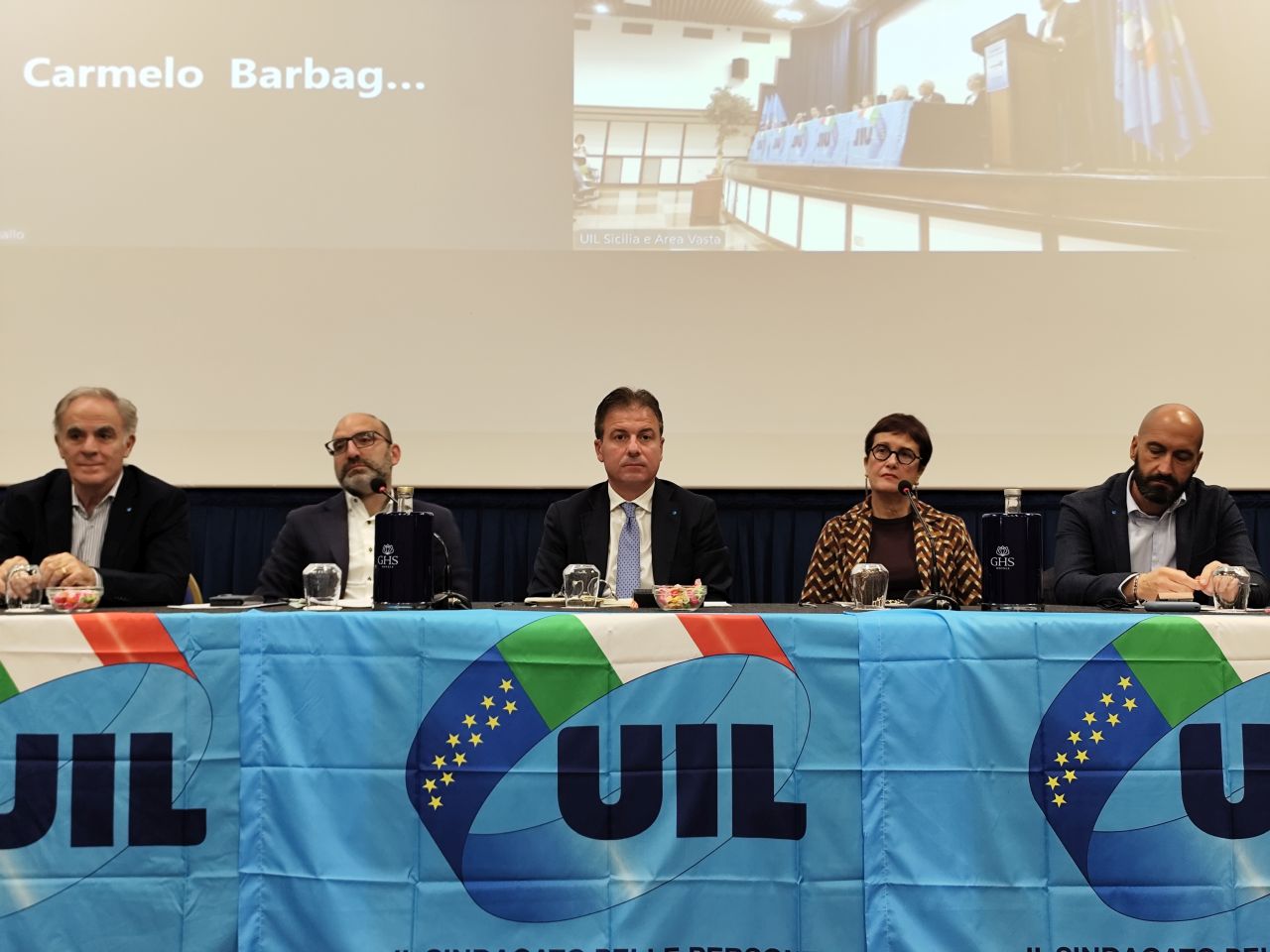PALERMO (ITALPRESS) – “On Nov. 29, we will take to the streets and we will do so on a regional basis, including here in Sicily, in Palermo, to demonstrate against a budget law that meanwhile does not value an important issue on the labor issue: the wage emergency. In Italy, young out-of-towners who win a competition in the public administration are still forced to give up because salaries are much lower than the cost of living, and there are 4.5 million workers in the private sector who have an annual income of 12,000 euros. And then there is also the issue of safety and health in the workplace that this maneuver does not address: there are more than three deaths a day and about 500,000 reports of work-related injuries.” This was told to Italpress by Uil national confederal secretary Santo Biondo on the sidelines of the regional confederal council of Uil Sicilia in Palermo, returning to the reasons for the union’s rejection of the budget law, against which they will take to the streets throughout Italy on November 29. “We had made very precise requests to the national government,” he reiterated, “in terms of the establishment of the crime of homicide at work, a special prosecutor’s office and recruitment that is still struggling to arrive in the competent inspection functions of the state. For Biondo, the critical issues do not stop there, but also invest the issue of the fight against tax evasion and the taxation of extraprofits: “It is a maneuver that does not address the issue of tax evasion, rather a two-year arrangement is made that legitimizes tax evasion, and rather than the tax on extraprofits a 3.5 billion loan is asked from the banks, but by not addressing the tax issue we are forced to cut social spending as we are seeing on health care in particular. In 2025 this budget law allocates only 1 billion and 300 million, little enough to renew contracts, to make that hiring plan that Minister Schillaci a few days had announced that, however, is found neither in the budget law nor within the structural budget plan that Italy has delivered to Europe,” he pointed out.And also on the Pnrr for Biondo a “paradox” is being packaged precisely on the issue of health care: “The government puts few resources in terms of ratio to GDP and per capita spending on health care in this budget law where instead the resources are there: 20 billion on mission 6 of the Pnrr to implement that territorial medicine, homes and community hospitals that serve to decongest the already existing facilities, to avoid tensions within emergency rooms, to give respite to those heroes of the pandemic who today are saying they can’t take it anymore.To avoid all that, we would need to spend those resources, but unfortunately there is a lack of data and we don’t know what the state of the art of territorial medicine is. And on this the government continues to give no answers on how the NRP is being implemented. Let’s not forget with what emphasis the Pnrr was presented in 2020 when Europe also granted Italy this big investment. It was supposed to modernize the country, it was also supposed to give answers in terms of convergence to the areas of the South that are falling further and further behind,” he added.For Luisella Lionti, secretary of Uil Sicilia, “the emergencies in the island are always so many and new ones are added to the old ones. We will take to the streets on Nov. 29 to say ‘no’ to a mindless government that turns away from the many emergencies in the region. In the middle of summer we faced a never-before-seen water emergency that affected the population, farmers and the tourism sector. In Agrigento, capital of culture, water was delivered once every 40 days. And we say ‘no’ to the failure to invest in infrastructure, there is a collapsing road network as well as the railway network, and then at Christmas we end up with the gift under the tree of expensive flights. We need decent, secure paid jobs, and for wages to have more purchasing power in the face of ever-increasing inflation. And then we absolutely must do more to combat the employment crisis: too much precarious work, too much poor and unsafe work. We keep counting the dead and this cannot happen anymore,” he concluded.
– Photo col3/Italpress –
(ITALPRESS).

